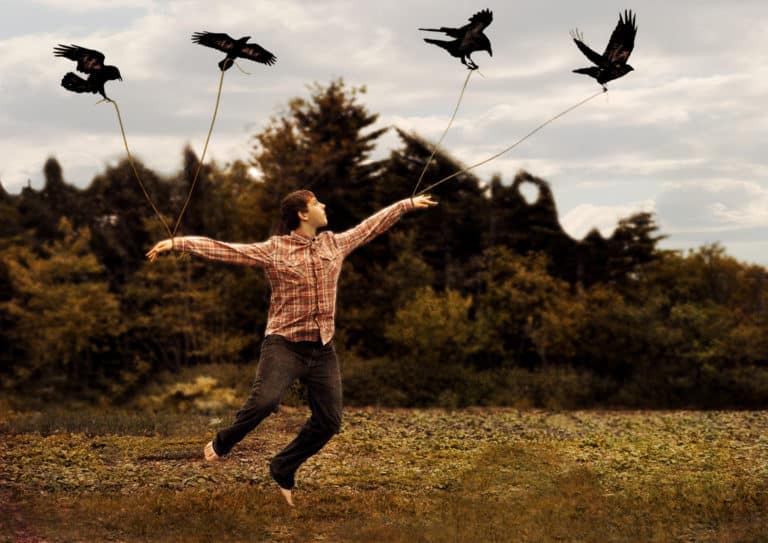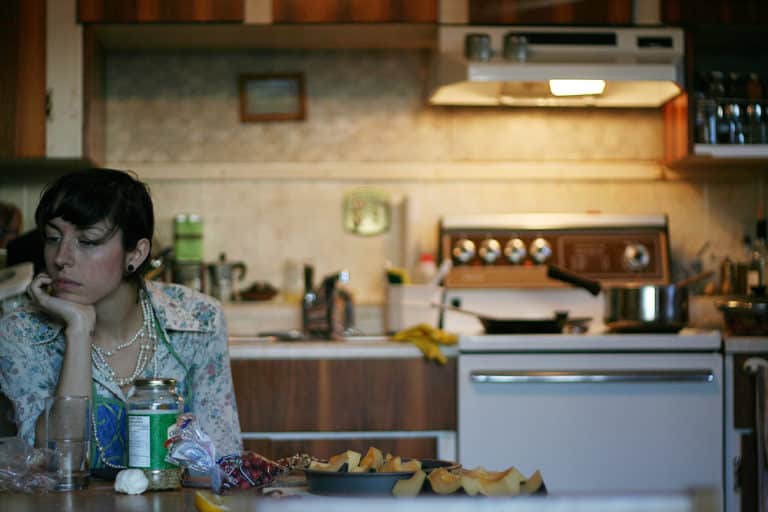
Image by Stephen Brace/Flickr (CC BY 2.0).
The Spiritual Art of Saying No
Taxi drivers have been some of my best therapists.
Monday morning, I disembarked a ferry with a sea of other passengers trying to get the most out of the last days of summer and made it out to the parking lot. I approached a van cab with a woman who looked to be in her 60s sitting in the driver’s seat, yapping on her cell phone. I waited patiently while she finished her conversation: “Look, I’m not coming in Thursday, so you’re going to have to figure out another plan. No, I’m serious. That’s the deal. Figure it out.”
She hung up. I confirmed that she was free and then climbed into the back seat. “I’m sorry about that — just had to finish up that call,” she said, turning back to look at me. She didn’t smile apologetically, but had a kind voice and a genuine tone.
“Please don’t apologize,” I said. “I’ve been trying to learn how to say no with more clarity, earlier on, so this was a good, impromptu lesson.”
“You got to, girl. If you don’t learn to say no, you’ll either be miserable or die. One or the other.”
I’d never heard it put so bluntly, but as we wound our way through the moss-covered trees of beautiful Bainbridge Island, this spiky-haired, taxi driving, Reiki master schooled me in the spiritual art of saying no. From her perspective, if you don’t learn to say no, you use your energy in ways that don’t make you happy. Do enough of that and you actually get physically ill — heart attacks, cancer, autoimmune illnesses; utter enough unconscious yeses and your body says the biggest, most finite no of all.
It was pretty convincing.

It also wasn’t the first time I’d thought about the spiritual art of saying no and my pathetic lack of skill in it. It’s not that I’m a doormat. So often when this issue gets talked about, I feel like it is portrayed as a problem of wilting flower women who just want to make everyone happy. I don’t mind disappointing people so much as I’m voraciously and indiscriminately interested in the world. I want to learn everything, be everywhere, collaborate with everyone. In thoroughly modern terms, I’ve got major FOMO about anything that fascinates me.
There is a vitality in that, but there is also a violence in it. As Thomas Merton wrote:
“The rush and pressure of modern life are a form, perhaps the most common form, of its innate violence. To allow oneself to be carried away by a multitude of conflicting concerns, to surrender to too many demands, to commit oneself to too many projects, to want to help everyone in everything is to succumb to violence. More than that, it is cooperation in violence. The frenzy of the activist…destroys his own inner capacity for peace. It destroys the fruitfulness of his own work, because it kills the root of inner wisdom which makes work fruitful.”
Forget balance. Balance is bullshit. What I mostly crave is integrity and joy — a sense that I’m doing what I do excellently and getting a lot of pleasure out of it, that I’m used up and useful.
I’ve noticed lately that when I try to do too much, the things I should have said no to manifest as monsters under the bed. I wake up at 2 a.m. and am immediately aware of the outsized presence of that thing that, in the light of day, seemed barely possible, and, in the unforgiving darkness, I realize I can’t faithfully execute. I write rambling emails backing out. I apologize sloppily under the moonlight, as if drunk on over-commitment. I hurt people. There’s no grace in it.
I’ve been learning to grow things over the last year — my daughter, first and foremost, but also plants and trees that we share with our co-housing community. Louise is the garden guru in our little community, and she’s been showing me how to trim back the bougainvillea and layer leaves into the compost and pick the artichokes before they explode purple. One of the first things she ever taught me was how to tend to the apple trees.
I was about halfway through my pregnancy, finally and noticeably carrying a creature in my belly rather than an extra layer of blueberry glaze donuts. It was a sunny Saturday and Louise — well into her 70s, willowy, and often wearing a t-shirt with some slogan of peace — showed me how each branch of the tree can only reasonably support two apples. You have to go, branch by branch, and pluck off little baby apples until every branch has only as much as it can support.
It felt sad to me at first, twisting off these hopeful little apples and dropping them into a bucket. They amassed quickly, collectively robbed of possibility by this big-bellied goddess of destruction lumbering her way along the front gate. I felt bad. But then I looked over and watched as Louise pruned without fanfare, gentle and direct. She had lived long enough to know that in order for some things to thrive, some things must die.
You say no so you can say yes. It’s sad in the way that all limitations are, but also liberating. You are human and finite and precious and fumbling. This is your one chance to spend your gifts, your attention, most importantly your love, on the things that matter most. Don’t screw it up by being sentimental about what could have been or delusional about your own capacity. Have the grace to acknowledge your own priorities. Prune and survive.

